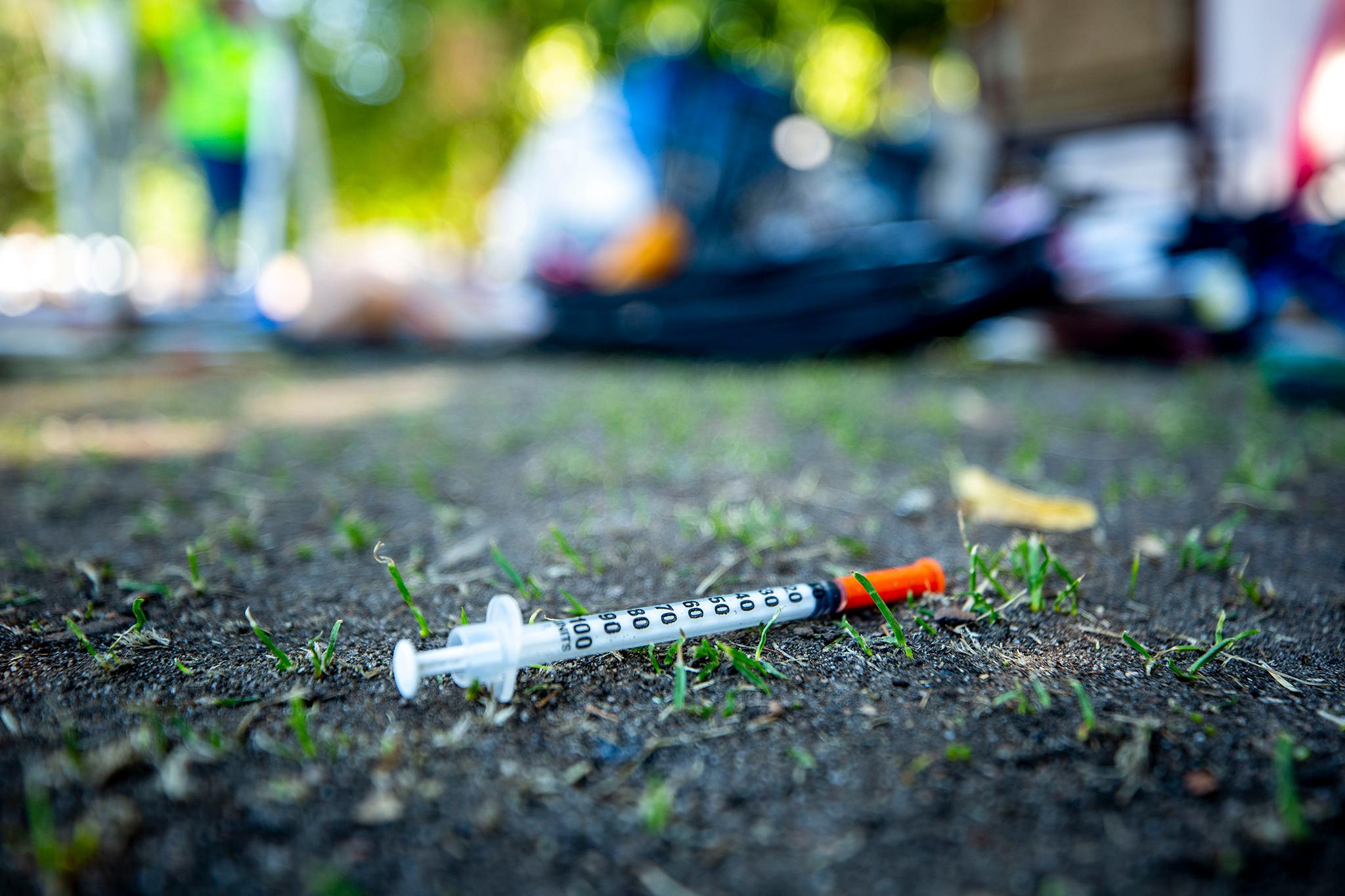It took nine months in 2020 for Denver to match the number of fatal drug overdoses from all of last year.
According to the Medical Examiner, 225 people have died from drug overdoses as of Wednesday, which is exactly how many people fatally overdosed in 2019. There were 209 such deaths in 2018. Medical Examiner spokesperson Steven Castro said the office is expecting a record number of death investigations overall this year.
City data shows the majority of drug deaths involve multiple substances, with 60 percent of deaths involving three or more drugs and 19 percent involving five or more. The increase in deaths locally has been fueled by fentanyl, a powerful synthetic opioid that can be up to 50 times stronger than heroin.
The Harm Reduction Action Center, which provides clean needles and supplies for people who use drugs, has been providing customers with fentanyl testing strips for their drugs the past two years.
HRAC executive director Lisa Raville said the pandemic and social isolation are fueling the rise in fatal overdoses.
Raville said that because libraries and other public spaces with bathrooms are closed, there is less of a chance that someone can intervene in an overdose. About 17 percent of people who die from drug overdoses are also experiencing homelessness.
"I think people are using alone," she said.
The Wall Street Journal reported last month that overdose deaths are increasing across the country.
Denver's public health data shows the city has seen a rise in fentanyl-related deaths between 2018 and 2020.
Back in 2018, only 9 percent of deaths involved fentanyl. That rose to 25 percent in 2019 and sits at 41 percent so far in 2020. That's led to 90 fentanyl-related deaths in 2020, up from 56 deaths in 2019 and 17 deaths in 2018.
In addition to the Harm Reduction Action Center, the city's public health department contracts with the Denver Colorado AIDS Project and Vivent Health for needle exchange programs. A city-run "Wellness Winnie" launched this year and was supposed to provide clean needle access, but it was repurposed to provide mobile coronavirus testing.














